Kids helping around the house is beneficial. Not only does it lighten the parents’ load, it also teaches them essential life skills such as cooking, cleaning, and organizing and fosters responsibility outside of the home. However, there usually comes a point when they have enough of doing chores for free. After all, they’re putting in hard work while making sure that the dog’s waterbowl is always full or that the trash is taken out.
A similar dilemma recently arose in this family’s home when the oldest daughter refused to bake cookies for free for a holiday party the parents were hosting. Realizing that making 100 cookies involves a lot, the mom offered to give $75, which she refused, demanding a bigger sum.
Scroll down to find the full story and conversation with a licensed marriage and family therapist, Suzette Bray, who kindly agreed to tell us more about paying kids for tasks.
Some kids might expect monetary compensation for helping parents around the house

Image credits: Mint_Images (not the actual photo)
Like this teenager, who refused to bake 100 cookies for parents’ party for free

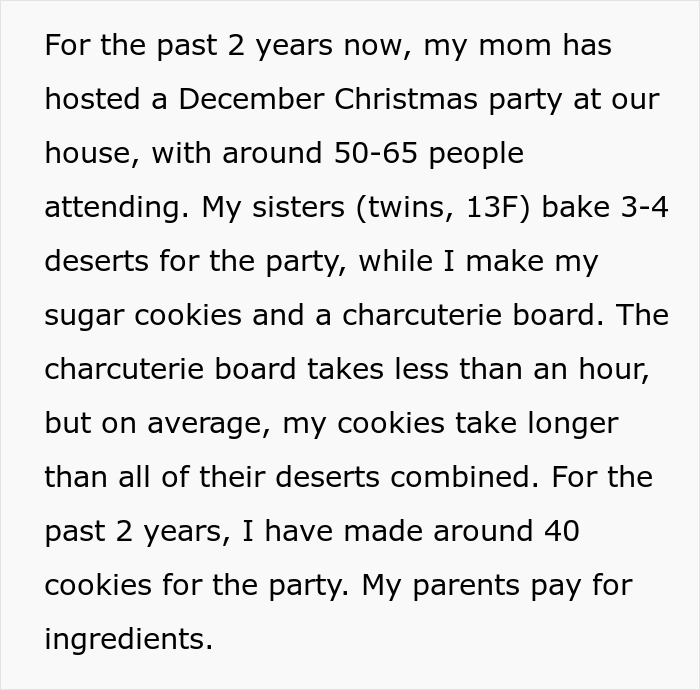
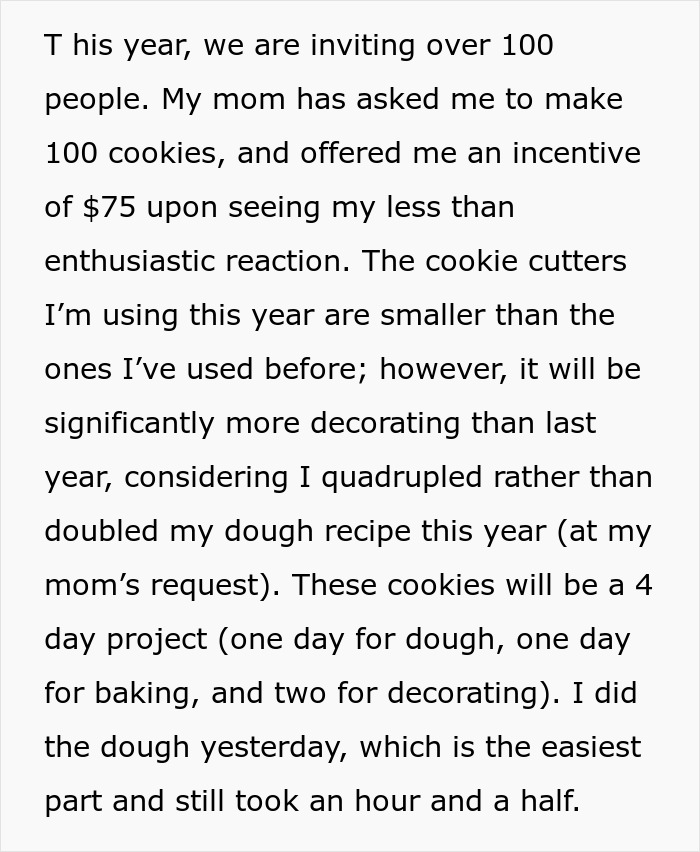
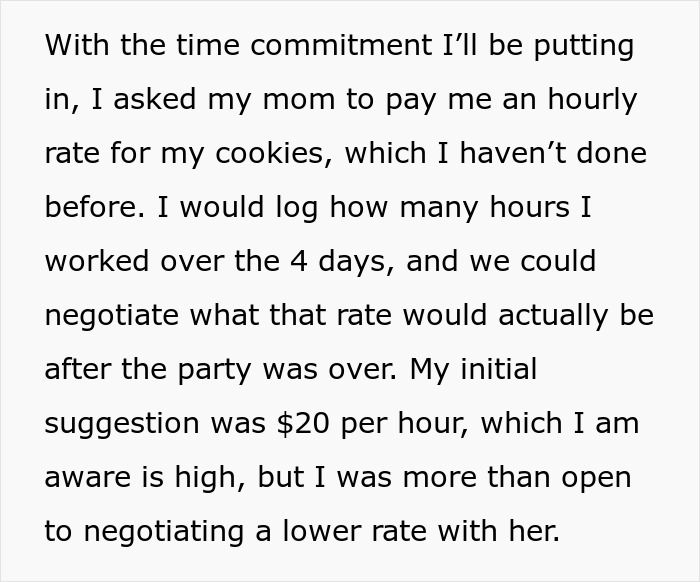
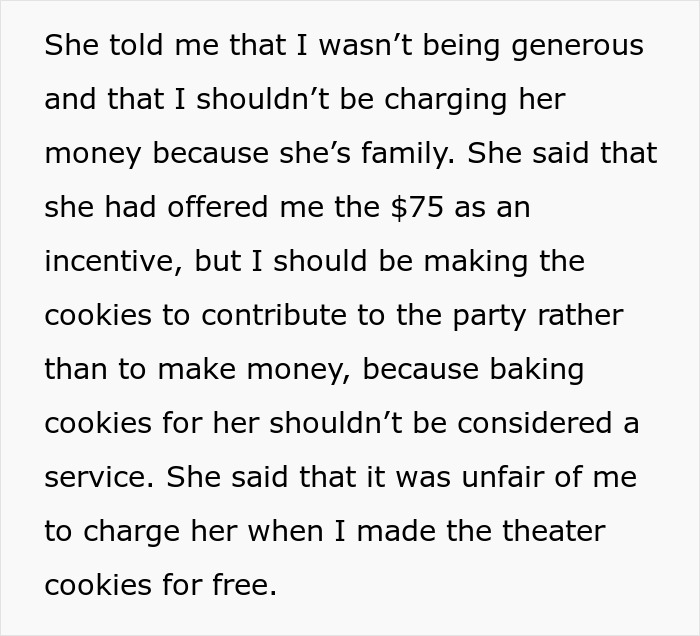

Image credits: KaikaTaaK (not the actual photo)
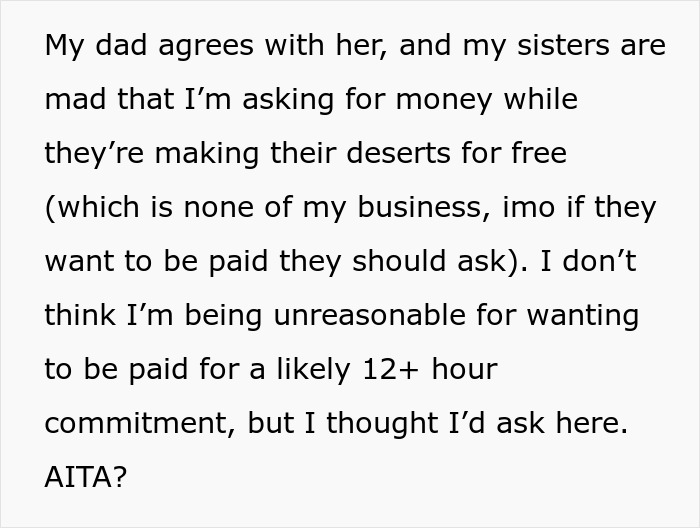
Later, the teenager updated the post with some clarifications


Image credits: QueenMoonshadow191
Around 70% of parents pay their kids to do chores
Around 70% of parents pay their kids to do chores. Most do it because they believe that it teaches children the value of money and discipline, which experts seem to confirm as true.
“Paying kids for tasks can teach them about being financially responsible, help them understand the value of hard work, and motivate them to take on larger, more difficult projects,” says licensed marriage and family therapist Suzette Bray to Bored Panda.
In addition, receiving a monetary reward can teach them to set financial goals, like saving for a specific toy or activity. This creates delayed gratification, which helps them to learn the importance of working towards a goal.
However, research shows that paying children for tasks doesn’t really work in the long term. Constantly getting rewarded with money after completing a task hinders their self-motivation, which means they might no longer find joy in doing something for its own sake.
“They might start expecting payment for everything they do, even the basic stuff that is part of being in a family. This more entitled mindset can reduce their intrinsic motivation, as they may refuse to help unless they see some financial gain,” explains Bray.
Another downside to rewarding kids with money for help around the house is that it can make them focus on materialistic things or make them worry about money.
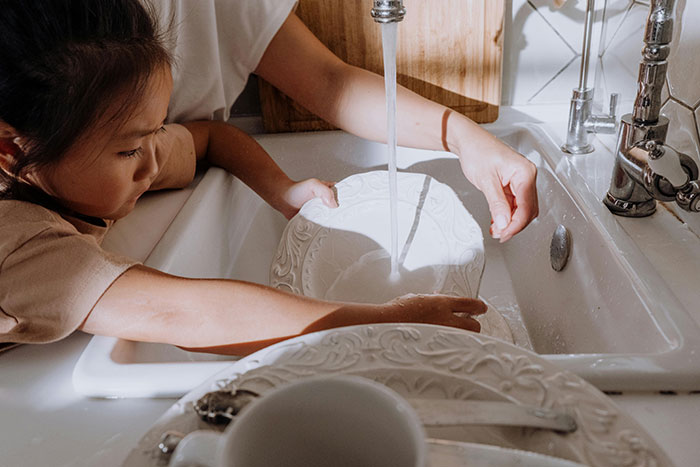
Image credits: cottonbro studio (not the actual photo)
Balance can be achieved by combining paid and unpaid chores
Achieving balance and combining paid and unpaid chores can give kids the best of both worlds. Bray calls this strategy a two-tier system.
“Tier one would include family chores like cleaning rooms or doing dishes. These would be considered shared responsibilities, not jobs to be paid for,” she explains.
“However, tier two would be the option for paying kids for extra tasks, like deep cleaning the garage or helping with large yard projects, which can teach them valuable lessons about effort and reward. This idea of two levels of tasks allows for kids to work toward the goal of earning money with tier two tasks, but also creates a sense of contribution instead of compensation with tier one tasks.”
Parents might decide not to pay for daily tasks like making their bed, brushing their teeth or setting the table but might want to reward them for chores that are beyond their regular scope, like washing the car or mowing the lawn. This, of course, depends on each family, as everyone’s needs are different.
Some parents might choose not to pay for chores at all. It all depends on what lesson they want to teach their kids. “Some families really want to teach their values of work tied to money, or if you work that earns you money. I think that’s well and good. In our family, I want them to know that being part of the family is the most important thing first,” said JoAnn Crohn, author of the No Guilt Mom blog.

Image credits: Nicola Barts (not the actual photo)
The author provided more information in the comments
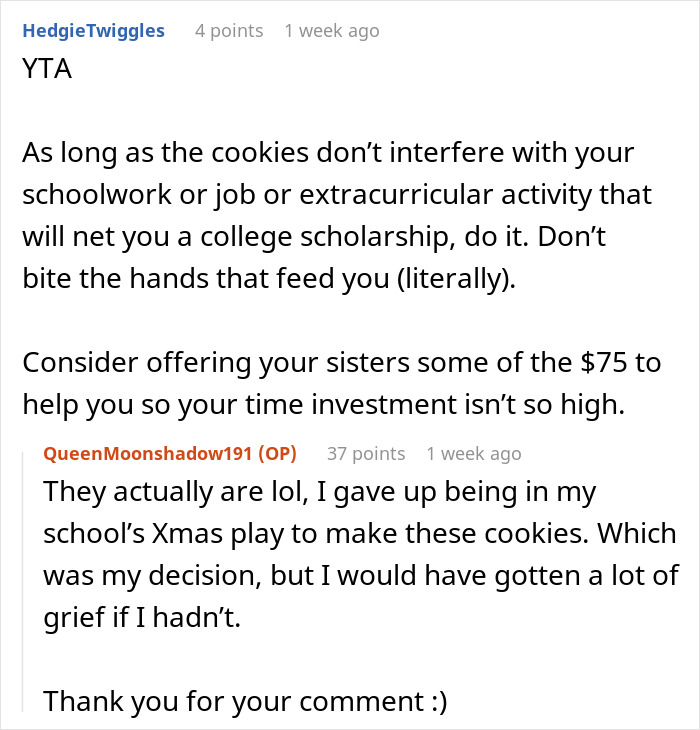
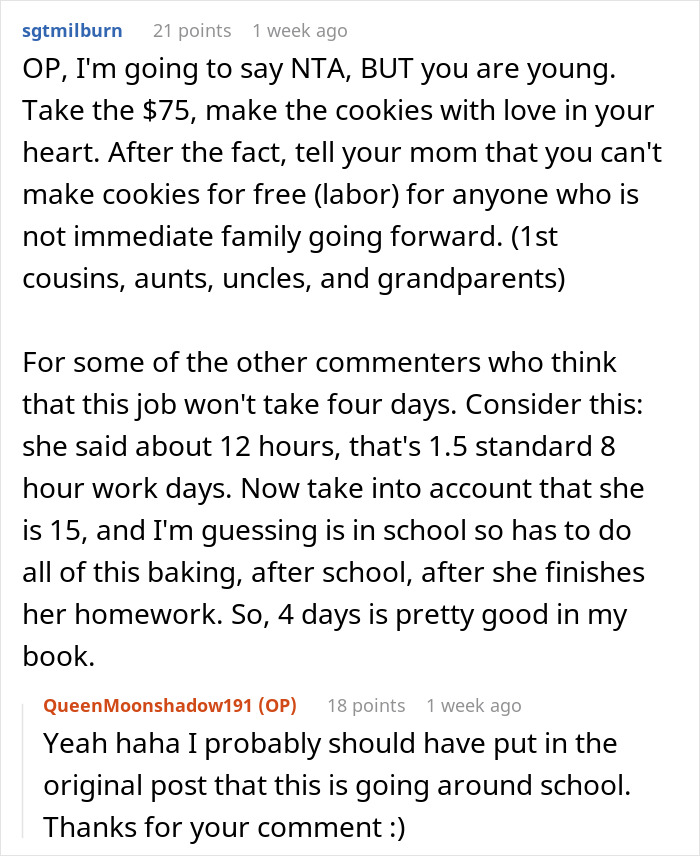
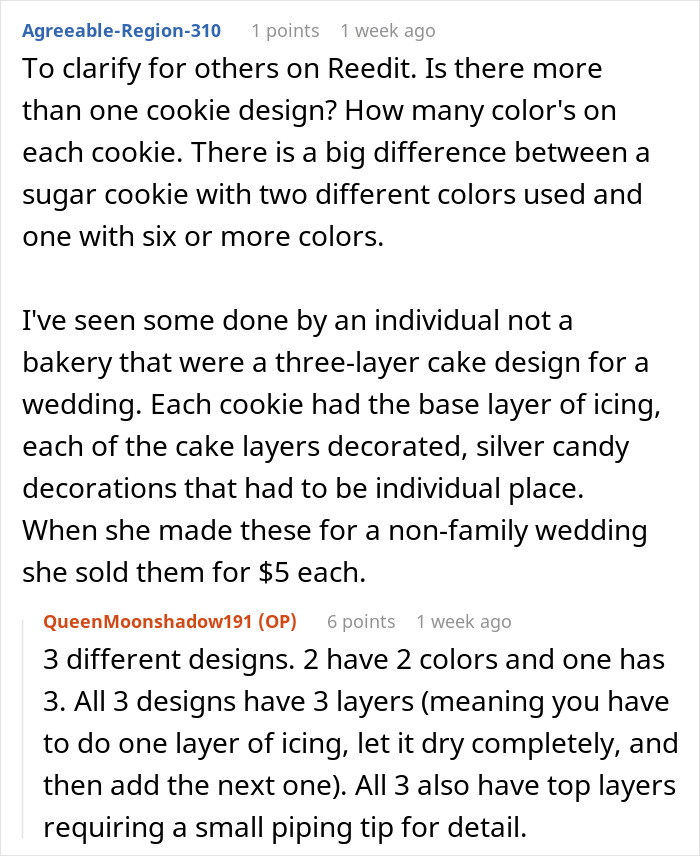
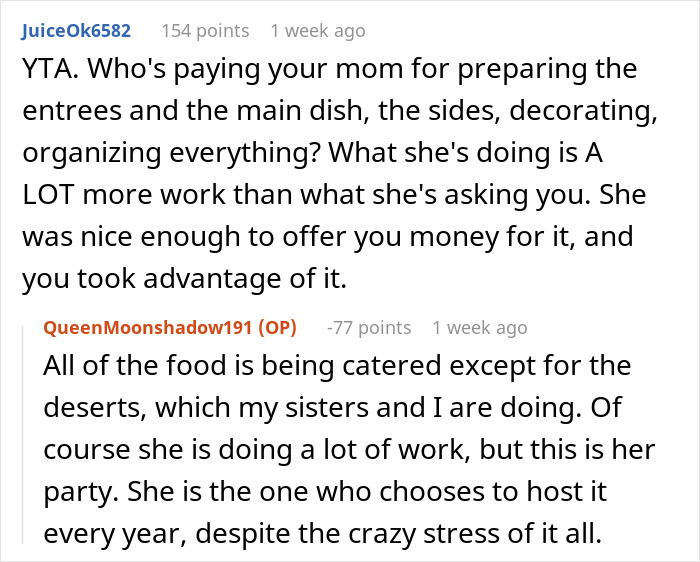
Some readers believed the daughter was the jerk in this situation
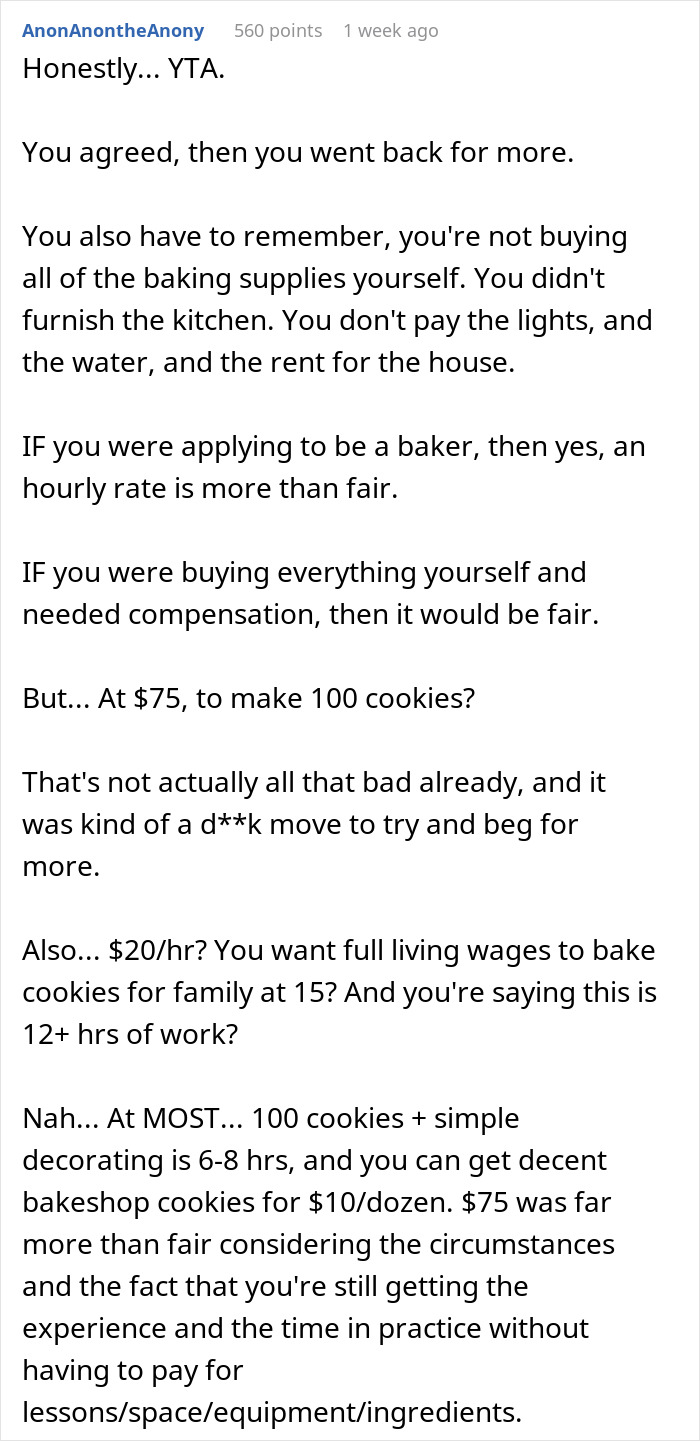

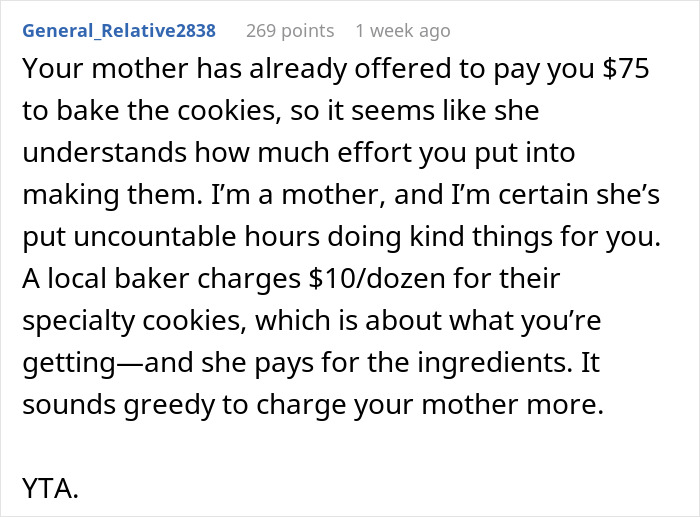
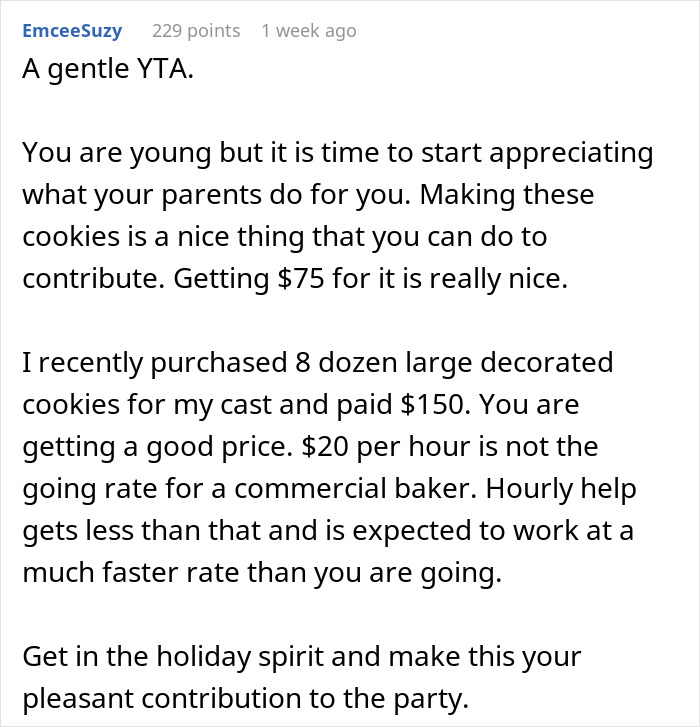
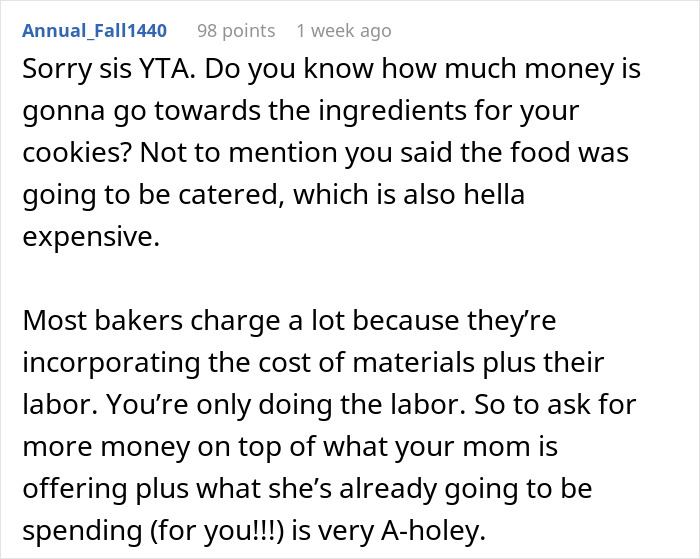
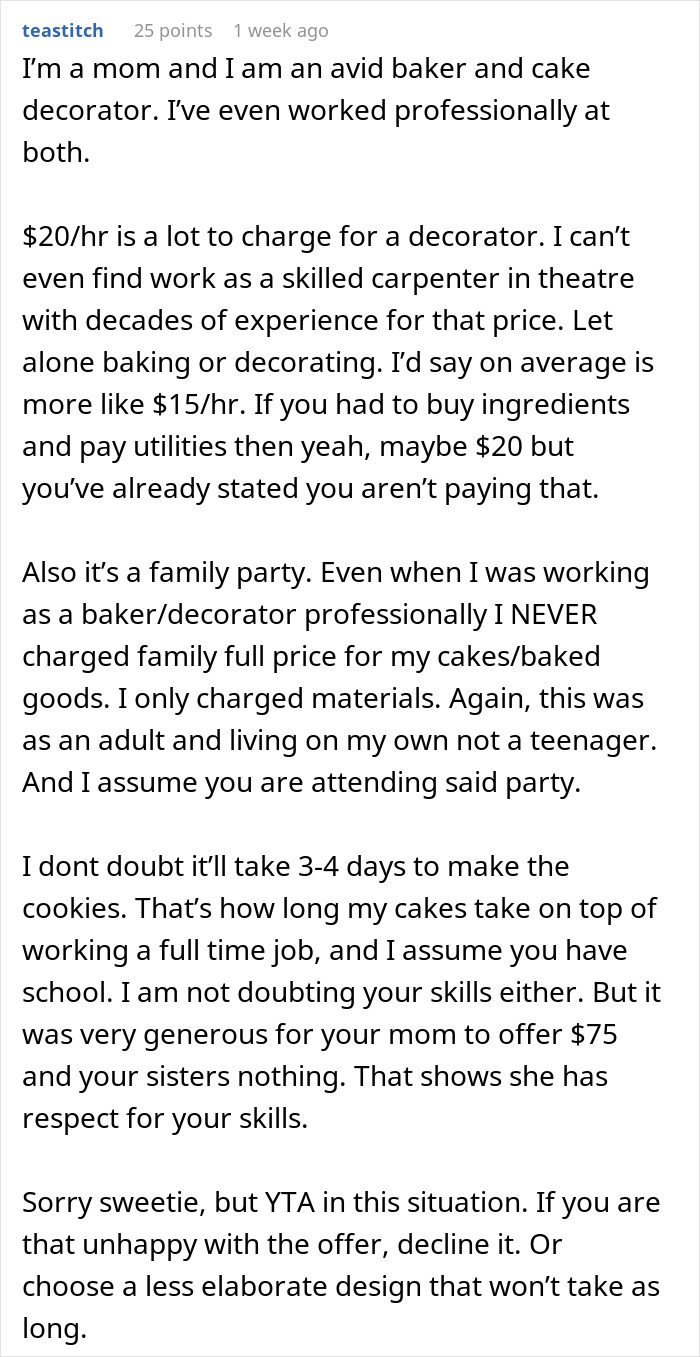
While others thought it was unreasonable to expect so much for from a kid
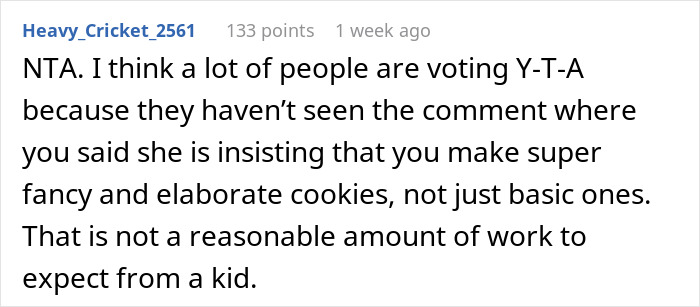
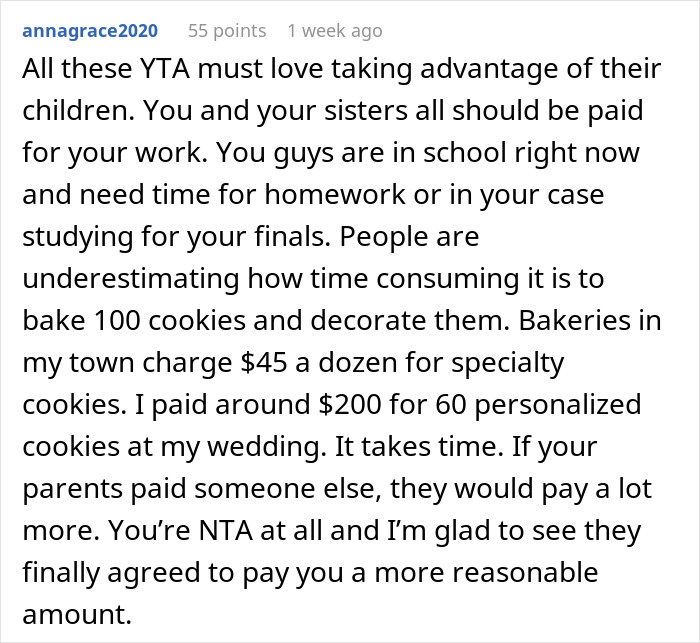

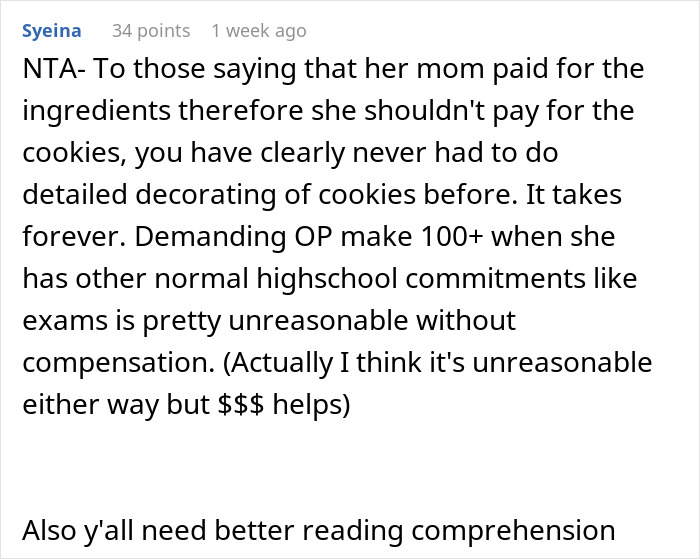
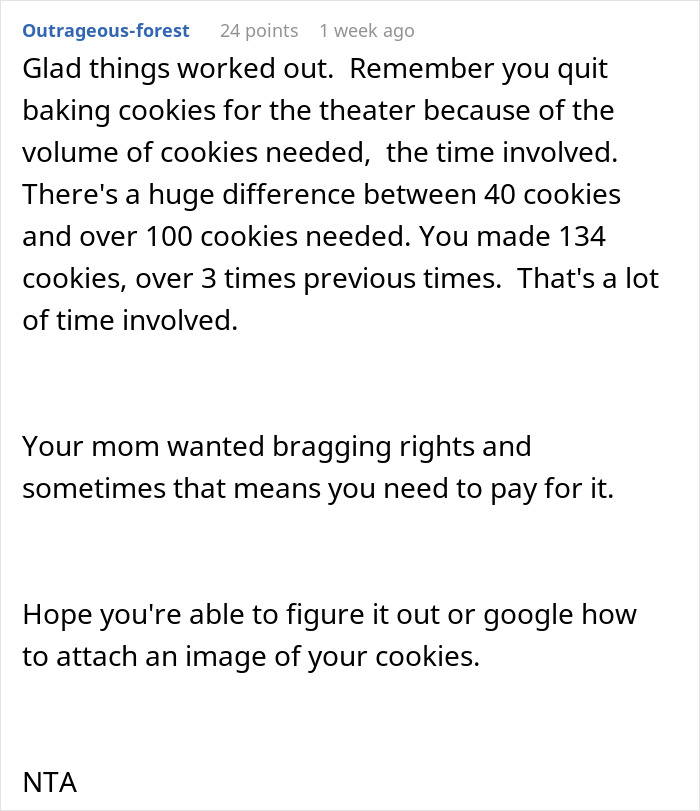
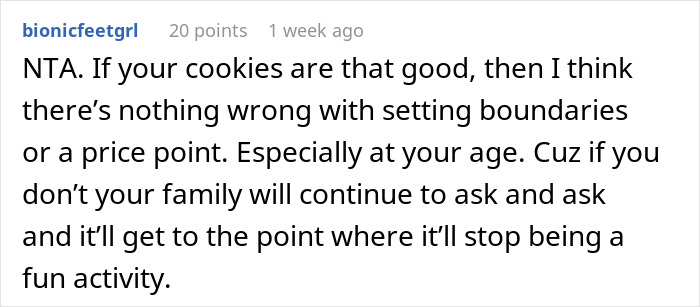
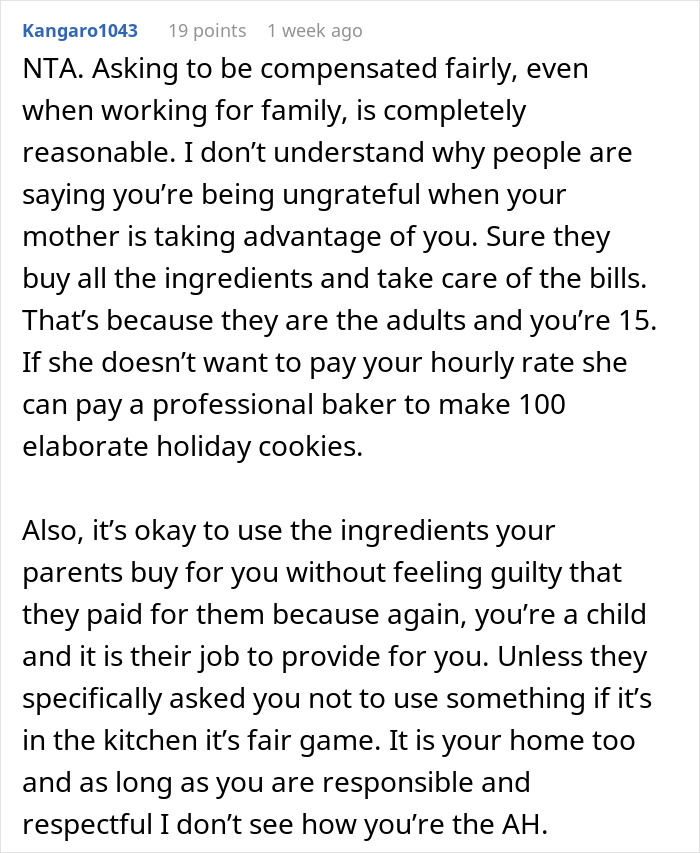
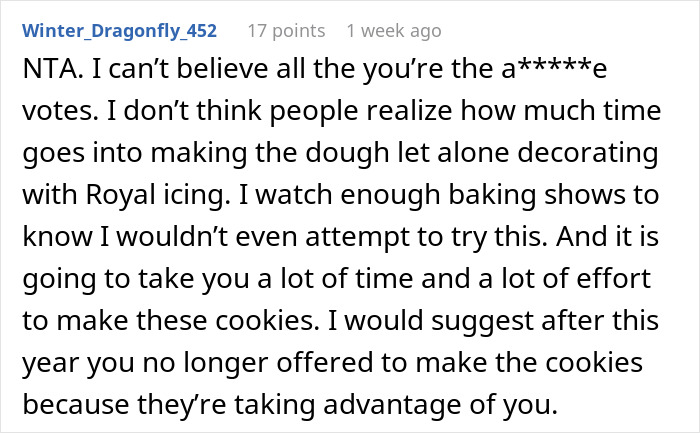

Later, the teenager posted an update








